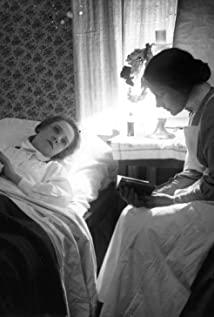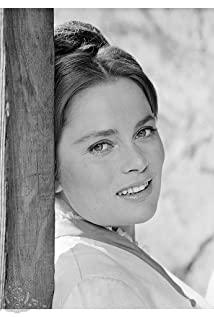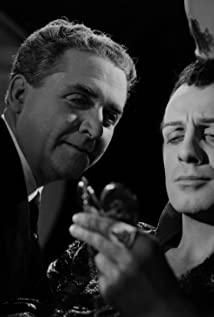Bergman sat in the car, staring blankly ahead.
Maybe it's over here, the car slides forward, straight, down the cliff step by step, falling and falling, like an accident, no one doubts, just do it, come on, come on.
Bergman sat in the car, staring blankly ahead.
1. It was a very different era from now, and most directors did not appear in a blockbuster way. In 1944, the twenty-six-year-old Bergman had little or no experience in making movies, except for writing a few a script. In the spring of that year, his "Frenzy" was made into a movie by the great director Alf Sjoberg and it was a great success. In July of the following year, Bergman changed a stage script "Mother" into a movie, which is his first work.
2. I admit that when I have the opportunity to look at the two works written by me again later, I can clearly see the pros and cons. Sjoborg is a good director, he can accurately capture the appropriate and core of the story. information, and I was worthless at the time. The process of making the first movie was, as its name suggests, a crisis, everyone and everything was probably against me, and in the sweltering weather, I was clueless and kept drinking to avoid disaster.
Ingmar, you made the scene too complicated for you to handle, remember, an action from here to there should be made as an action from here to there, not necessarily a move from here to there Actions. I am forever grateful to Victor Sjostrom, who showed up on the set of Crisis just in time to grab me by the neck and walk down the road outside the studio to teach me how to make a movie.
3. Another person Bergman should be grateful for is Lawrence Malmdis. It was a miracle for a director whose first work was a flop at the box office to get another chance, and when Bergman returned to the Helneuburg Theatre to continue his rehearsal, he thought he would never get another chance. Until Lawrence showed up, he had met Bergman on "Frenzy" and tempted him to make a film for himself. While mocking "Crisis" as an outright bad movie, he continued to tempt Bergman to leave the Swedish studio and follow him. Ingmar, your movie sucks, I can't believe it, you've let down those who expected you, but my original advice is still valid, leave Swedish Films and come work with me.
4. I can sit in the director's chair again with that round hat on. This time, I was still stubborn, and I had a lot of arguments with Lawrence, but he was stricter than me, and I also learned a lot from him, "When you and your partner read the log, your emotions are in a mess. You don't care for the cost. To shoot well, so naturally you need to justify your omissions and exaggerate what you see. You support each other, it makes sense, but it's dangerous and creates psychological tricks. Don't be fanatical, don't be critical, let Zero in on yourself, don’t get mixed emotions when you see things, so you can see everything.” Lawrence is a really good producer.
5. Bergman showed little noteworthy skill or talent in his early films, writing twists and turns and creating intense emotion without learning how to weave splendor from a clump of thread. It was not until November 1948 that he made "Prison," which was his sixth film. Yes, can you believe it, the man who would eventually become the most powerful director of all time didn't begin to find his way until the sixth film.
If he succeeded in committing suicide in Switzerland in 1955, he would probably only be mentioned in the classroom by students of the film school as a second-rate director in the history of winning and losing films. It won't arouse too much enthusiasm from pirates, and as for the impact on me, every time I see the name "Ingmar Bergman", it will pass by without any ripples.
However, death does not change his inner film talent. No matter which stage of his life this death occurs, talent fills up all his life time. If there is no time for these talents to display, then those talents will Where did it go? Did they ever exist? I'm a little confused. How many facts has time destroyed or rewritten?
6. When creating the script for "Prison", I once described a surreal scene. Under the guidance of the painter, Brigitte saw countless mysterious faces on the wallpaper and staged a strange drama. This scene didn't appear in the finished film because I couldn't finish it, it was too complicated and difficult, and I wasn't skilled enough to interpret it technically. Prison is just my first personal film.
It takes not only courage, but also the magic of a magician to cross the flowing borders.
Twelve years later, I finally completed this vision. In "Still in the Mirror", I adjusted the scene slightly and showed it with a more powerful face. I dare to say that I have become a magician who has moved from being qualified to greatness. Teacher, not the arrogant and ignorant kid in 1944 who clamored on the phone to let the old guys like Morand Dreyer abdicate.
Two ladies sitting in a summer twilight drinking a bottle of wine. Viola was drunk, took a cigarette that Wahlberg lit for her, and then slowly moved the burning match close to her face, holding it in front of her right eye, until the fire went out.
It's the first time I've made a movie that way, building up the plot with almost imperceptible, suggestive little details, and I'd like to thank Brigitte Thornles for giving me the idea and it became one of my feature. After that, I kept trying new methods, and this enthusiasm became uncontrollable in 1953, because "Night of the Clown", I turned it into a war of evil spirits smeared with eerie atmosphere, but in the audience. There was resistance there, and a well-known film critic in Stockholm sarcastically said, "I refuse to examine Mr. Bergman's latest vomit with the naked eye." I admit that I could never really ignore the reaction to his work from the audience, So, that failure hit me hard and prevented the transformation that I should have completed ahead of schedule. Next, he and I had to make a romantic comedy "A Lesson in Love" to save my career.
"Night of the Clowns" was pretty much the only film of that period that I thought could echo the later works.
7. My setbacks in that era helped me more than they hit me. If Bergman could calculate the past with objective results, he would certainly say so.
He has mastered some methods of expressing the emotions of characters, and realized that those characters can have more and deeper connotations, but what he lacks is excavation, how he concentrates on summarizing their too complex and rich characters and emotions.
This ability, he piled up with countless feet of film.
One day when I had dinner with Mr. Lan, I talked about Bergman, and said that one of the differences between him and many American-style films is that those films always try to stretch the cross-section of the story as thin as possible, lest the audience not be able to understand it at a glance. , Bergman is not afraid of these, he does not care about the presentation in the cross section, he wants to compress, squeeze hard, become narrow and thick, his film less than 90 minutes will perform better than someone else's more than two hours. multiple content.
Of course, this refers to him later. Before 55 years ago, he was not proficient in how to compress the form, so I couldn't see the glass-piercing treatment in "Masque" that made me fall into the ground.
But he has some other great touches, like the opening scene of "Women's Waiting." By the river at dusk, a group of women are calling for their children to come home for dinner, while they are also waiting for their husbands who will return home. What a good prologue, although it is not necessary to show all the content behind, but this neat beginning sets the tone and perspective of the story.
His melodrama era ended with a 1955 "Summer Night Smile", and in 1982 he announced his farewell to the film industry with a popular drama "Fanny and Alexander". The two films can be compared, not just in terms of the films themselves, but in the context of how Bergman's two transitions in his film career occurred, and his own growth behind it.
Zigong said: For example, the wall of the palace is as long as the shoulders, and you can see the goodness of the house. Those who get the door may be few! Master's cloud, is it not appropriate?
—— "The Analects of Confucius, Zi Zhang"
View more about Smiles of a Summer Night reviews











